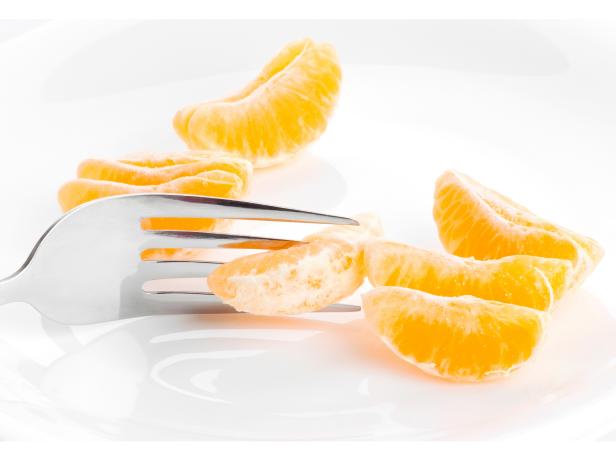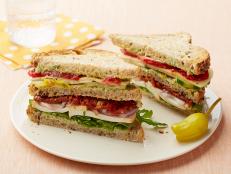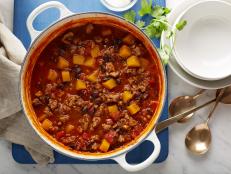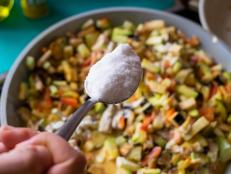Ask The Experts: 11 Healthy Cooking Mistakes

Sergei Vinogradov
Healthy cooking isn't rocket science, but there are mistakes many folks make that keep their foods from being as nutritious as they could be. Last month, we polled nutrition experts about the foods they avoid; this month we polled more top nutritionists and registered dietitians to find out the most common healthy cooking faux pas.
I always urge people to read the entire recipe before they make it – nothing ruins a healthy recipe like skipping a step or realizing at the last minute that you don’t have a necessary ingredient. A little forethought is all you need to help make any recipe a success.
The rest of the Healthy Eats team notices that a lot of folks over-process their fruits and veggies and have a tendency to get a little too saucy:
“Refrain from peeling your fruits and veggies as the skin is packed with nutrients. Buy organic and give them a good wash before using they enjoy the texture and nutrition those peels provides … (and) … Don’t boil your veggies as it leaches the nutrients. Try a quick pan steam with a little bit of water for tasty, tender yet crisp veggies. Feel the need to boil -- save the water for cooking grains or soups.”
“Many of my clients admit they'll use way too much sauce (teriyaki, sweet and sour, BBQ, etc.) when marinating food or making a stir fry. Typically the serving size is only 2 tablespoons, but they'll pour on closer to 1/4 cup, which is filling an otherwise healthy dish with loads of unnecessary calories, sugar and sodium. I recommend using less sauce and adding more flavor with fresh herbs, spices, or lemon zest.”
“Some people like to slice up fruits and veggies so they’re ready to snack on. This is a great idea for a healthy snack, but there are some things to keep in mind. Slice fruits and veggies in large chunks—the smaller the size, the easier the vitamins are destroyed. Also, prepare enough food for only a day or so---the longer it sits around, the less vitamins are present.”
We got a wide variety of responses, many touched on less-than-healthy substitutions that are commonly thought of as "better for you". The take home message – enjoy REAL foods.
“Many of my culinary students will say to me that they're surprised at how delicious the food is. Too many people are still under the impression that healthy food isn't supposed to taste great. Get over it! When prepared using fresh, real ingredients, healthy food is tasty food.”
-Jackie Newgent, RD, CDN, culinary nutritionist, author of Big Green Cookbook. Read the recent Healthy Eats interview with Jackie.
“Butter, for example, has an unhealthy halo due to the saturated fat content; we know that saturated fats are bad for our heart health. Olive oil, on the other hand has a healthy halo due to its unsaturated fat content, and we know that unsaturated fats are good for heart health. The heart health message seems to have gotten through; however, many people think that if they are on a weigh loss diet, substituting olive oil for butter will aid in their weight loss goals. It is important to understand that a tablespoon of butter and a tablespoon of olive oil (and any other fat, including lard, canola oil, corn oil, beef tallow, etc...) all have the same number of calories. The unsaturated fats are over all 'healthier' fats, but when evaluating fats, one must realize that they are still a major contributor to calories in the diet.”
-Chef Kyle Shadix, MS, RD, certified chef de cuisine & culinary nutrition communications consultant
“Choosing to go all organic is a great thing (if you can do it) but many people don’t understand that just because junk food (chips, cookies, cakes, ice cream, candy and more) is organic it doesn’t necessarily mean it is the best choice. I find that many people believe that buying organic makes them immune to health problems.”
- Stefanie Bryn Sacks, M.S., Culinary Nutritionist, food counselor, nutrition educator and chef instructor
“Buying turkey burgers in place of 93% lean beef without reading the fat content. If the turkey burgers contain the skin, then they are often higher in fat than a beef patty--in this case you'd be better off getting the extra iron at a lower calorie load by going with the beef burger.”
- Melissa Halas-Liang, MA RD CDE, founder of www.superkidsnutrition.com
“I tell folks: A little bit of full-flavored, full fat cheese is better than any mountain you can create of fat-free cheese! There is so little flavor in fat-free cheese that people end up grating up a mountain of the stuff just to generate the flavor they think they are getting! Use the real stuff; a little goes so far, and you know exactly what the ingredients are!
- Amanda Archibald, R.D., founder/owner, Field to Plate
“Substituting 100 percent (full fat) with the fat-free version and trying to replace every bit of fat (or sugar) with a non-fat or sugar-free alternative. I say enjoy the real thing, just don’t overdo the real thing!”
-Christopher R. Mohr, PhD, RD, exercise physiologist and registered dietitian of www.MohrResults.com
“People try to use sugar substitutes in baked goods, especially cookies. Sugar provides many roles in the baking process, and using a sugar substitute in place of the real stuff just changes the taste, texture, and the way your baked goods will look. I suggest using real sugar in recipes and reduce the amount that the recipe calls for by 1/4. Generally, the baked good will come out just fine and you have successfully reduced some of the added sugar.”
- Julie Upton, MS, R.D., freelance writer and co-founder of EatLikeanRD.com
“I find that many of my clients go bland when cooking healthy. They grill a chicken breast without seasoning, they forget to spice a stew or they make a low-fat sandwich without a bit of excitement. I’m fine with their choices if they like the taste, but I worry if they consider their healthy meal a punishment. Here’s my fix: fresh thyme and rosemary goes a long way, get saucy with basil leaves, kick it up with chili pepper, give it an Indian twist with cumin and turmeric or shred some ginger. For a sandwich, go for it with a spicy mustard, horseradish or cranberry relish. Healthy meals do not have to be bland!”
- Jenna A. Bell, PhD, RD, CSSD, blogger for ChicagoNow.com/Eatright and co-author of Energy to Burn
































